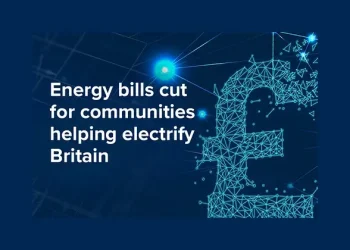The UK government announces a significant policy shift, extending network charge discounts for energy-intensive businesses from 60% to 90% starting in 2026, impacting 500 companies like British Steel and INEOS.
This initiative, aligning with the Modern Industrial Strategy, aims to reduce electricity costs to match those of EU counterparts, potentially saving up to £420m annually.
Details of the UK’s New Energy Cost Reduction Policy
The UK government has launched a consultation to significantly increase network charge discounts for energy-intensive industries. Starting in 2026, eligible companies will receive a 90% discount, a substantial increase from the current 60%.
This policy change is expected to benefit around 500 companies across sectors such as steel, ceramics, and chemicals, which are particularly affected by high energy costs.
Projected Economic and Employment Benefits
By reducing the operational costs for these industries, the initiative is projected to secure tens of thousands of jobs. It aims to make UK industries more competitive by aligning their energy costs with those of European nations like France and Germany.
The annual savings of up to £420m could also reduce the reliance on subsidies, encouraging more market-driven competition and potentially stabilizing production costs for consumers.
Historical Context and Policy Evolution
This policy builds on previous measures such as the British Industrial Competitiveness Scheme (BICS) and British Industry Supercharger (BIAS), which also focused on reducing operational costs but did not include such deep cuts to network charges.
The new strategy represents a more aggressive approach to cost reduction, focusing on infrastructure charges that significantly impact baseline operational costs.
Industry Reactions to the New Strategy
Industry leaders have responded positively to the announcement. Gareth Stace of UK Steel praised the move as ‘meaningful progress’ in addressing the energy cost challenges faced by the sector.
However, some critics argue that despite the reductions, the cost per megawatt-hour will still not match the lower rates offered by some European competitors, suggesting that further actions are necessary.
Insightful Data on UK’s Industrial Energy Strategy
| Category | Detail |
|---|---|
| Discount Increase | From 60% to 90% |
| Effective Year | 2026 |
| Industries Benefited | Steel, Ceramics, Chemicals |
| Annual Savings | Up to £420m |
| Policy Comparison | Aligns with EU energy costs |
| Consultation Period | Extended to 2 months |
Enhanced Accessibility and Administrative Improvements
The government has also extended the consultation window for applying to these discounts from one month to two months. This change is intended to reduce bureaucratic barriers and make the process more accessible, especially for SMEs and regional businesses outside London.
This adjustment is part of a broader effort to streamline procedures and encourage broader participation in government subsidies, aligning with the goals of the Modern Industrial Strategy.
Insightful Remarks from Influential Leaders
“This government is on the side of British industry… paving the way for new investment and job creation,” stated Business Secretary Jonathan Reynolds.
“These reforms reflect solutions… unlocking investment, creating jobs, accelerating decarbonisation,” commented Gareth Stace, Chair of UK Steel and the Energy Intensive Users Group.
Additional Reading
Sources: GOV.UK Press Release, Marketsteel Article, GridBeyond Article, Department for Business and Trade and The Rt Hon Jonathan Reynolds MP.
Prepared by Ivan Alexander Golden, Founder of THX News™, an independent news organization delivering timely insights from global official sources. Combines AI-analyzed research with human-edited accuracy and context.









